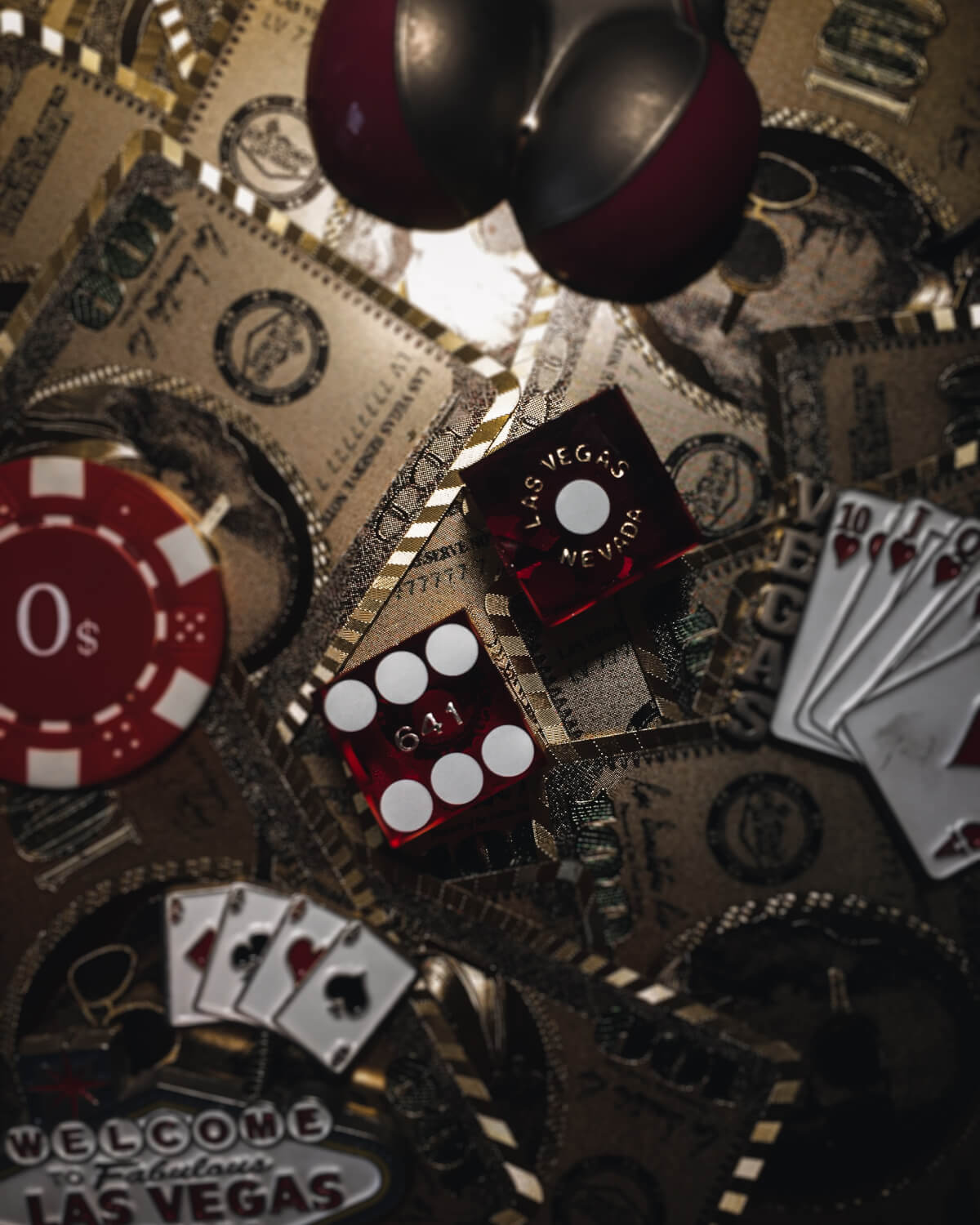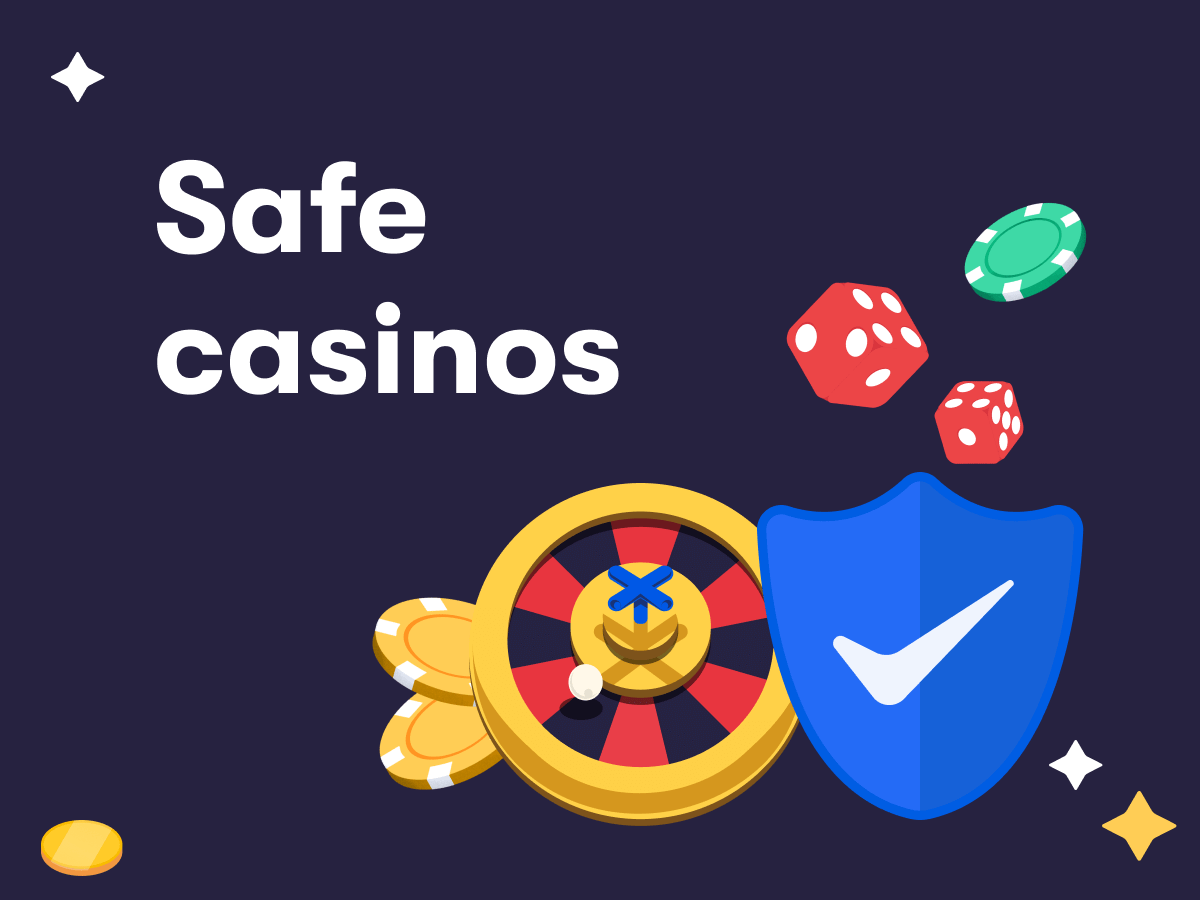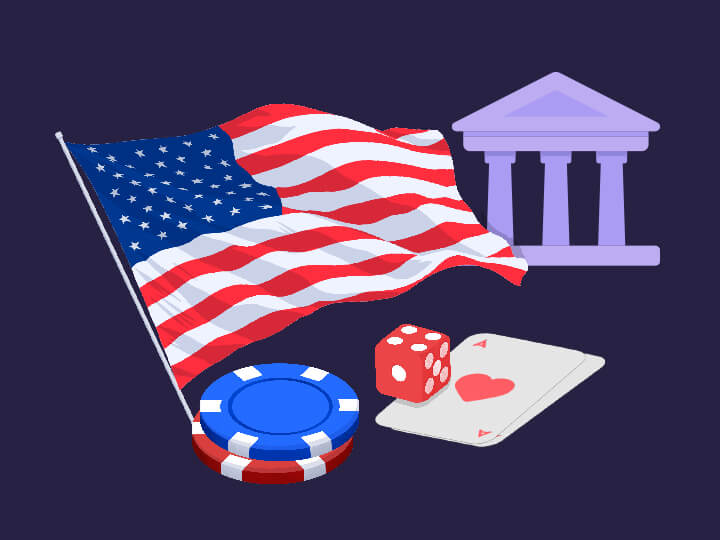In 2019, the commercial gambling market in the US was worth $79.61 billion and in 2021 this record was smashed with $98.1 billion in revenues. Revenue in 2022 is projected to amount to $105.60bn making it the highest-grossing year in the history of legal gambling in America.
Based on these numbers alone, it’s easy to see that gambling is a hugely popular activity across the board in the US. But what is the history of gambling? Why do Americans get so much pleasure from betting on outcomes and from where does this phenomenon stem from?
The fact is that the history of gambling extends back to ancient times to the extent that it’s almost part of our DNA. Here we take a closer look at the fascinating evolution of gambling history from its origins centuries ago to the multi-billion dollar industry it is today.
The ancient origins of gambling
Archaeologists have uncovered evidence that people in ancient civilizations of Egypt, China, Japan, and Greece played games of chance with dice and other devices as far back in history as 2000 BC. These ancients also discovered ways to cheat, with loaded dice weighted to make a particular number come up more often than others—have been found in ancient tombs in Egypt, the Far East, and even North and South America.
Dice have been identified as the first-ever device used for gambling. Originally they were carved from sheep bones and called ‘knucklebones’ and have been referred to in numerous historical texts including the epic poem, the Mahabharata which was written in India around 2,500 years ago.
Dice are also mentioned in the Bible, in a New Testament story of Roman soldiers throwing dice to get the robe of Jesus Christ. To back this up, Roman bone dice have been found dating as far back as the first century AD [2]. The Romans were also known to use dice for gambling on chariot races, animal fights, and gladiator contests.
According to Greek poet Sophocles, dice were the invention of a mythological hero during the siege of Troy. Whether that is true or not is debatable, but his writings dating from 500BC, were the first mention of dice in Greek history.
Like the Romans, ancient Greeks loved to gamble on all sorts of things at every given opportunity, even though it was forbidden to gamble within the city of Rome. The penalty if caught was calculated at four times the stake being bet. In response to this, ingenious gamblers created the first chips in the history of gambling so that if they were caught in the act by guards, they couldn’t be accused of wagering for money.

The medieval period (500 to 1500)
Gambling was legalized by some governments during medieval times, especially in what is now modern-day Spain, Italy, Germany, and the Netherlands. The British and French were much more conservative, with all forms of gambling outlawed. King Louis IX of France banned gambling during his reign for religious reasons. However, as in Greek and Roman times, illegal gambling continued to thrive.
During this period of history, Christian powers in Europe launched the Crusades, which were military expeditions against Muslims located in lands considered sacred to Christianity. Gambling was permitted only for people holding the rank of knight and higher, with severe penalties such as floggings for any violators. Even the elite who were allowed to gamble had to observe a legal limit on how much they could lose. This concept went on to become known as limited-stakes gambling.
When the Christians returned from the Crusades, they brought with them long-legged Arabian stallions as part of their booty. These were bred with English mares to produce what we now refer to as thoroughbred racehorses. This created a new pastime for the higher ranks of society, who enjoyed betting on private horse races that were closed to the public.
Card games also became popular in Europe towards the end of the 14th century, with one of the early references in Europe dating back to 1377. The earliest card game that was played a little later in the 1400s that is still played in casinos today is a 2-player version of Baccarat. Although Baccarat has long historic roots, the game has evolved numerous times over the year to become a quite different game in the 21st century.
During the late 15th century and early 16th, lotteries started to emerge in Europe as a way of making money for public projects [3]. The first official lottery was established in England by Queen Elizabeth I in 1567. However, lotteries may also have been used centuries earlier in China to fund state works like the Great Wall of China. This is suggested by the archaeological discovery of keno betting slips said to be used in 200bc.
Precolonial America and the colonial era
Indigenous Americans were known to play games of chance as part of tribal celebrations and ceremonies hundreds of years before North America was colonized. The most commonly played game was one involving dice and a bowl or basket. Five plum stones carved with different markings were tossed into the bowl and wagers were placed on the combination of markings appearing after a throw.
The Cheyenne Indians called this game ‘monshimout’ and it went on to be adopted by the Arapaho and New England tribes and called ‘hubbub’. In many senses, the dice and bowl game was a very early version of what we now call slots. Later, these same games were incorporated into slot machines.
With the creation of the New World which is now the United States of America, European colonists brought gambling traditions with them. According to historical accounts, New England became a hub for gambling on horse racing, cockfighting, and bull baiting. Bull baiting is a more gruesome form of Spain’s bullfighting, involving dogs being thrown into a ring to torment a tethered bull, which in return would gore the dogs to the spectators’ delight. The books run for gambling on this event were based on how many dogs the bull would kill.
In 1612 King James I (1566–1625) of England introduced a lottery to Jamestown in Virginia, where the first permanent British settlement was located. Lotteries were principally used to raise money to fund infrastructure development as there was no taxation at that time. Lotteries were later held throughout colonized America, with the funds being used to build schools, roads, hospitals, and towns and for the provision of other public services.
But not everyone was happy with the spread of gambling in the colonies. Many Pilgrims and Puritans had fled Europe to escape persecution during the 1620s and 1630s for their staunch religious beliefs. Both religions have a strict work ethic that places emphasis on work as being morally redeeming, whereas gambling is considered sinful because it prevents more productive endeavors.
During the 16th and 17th centuries, the most popular gambling sports were cockfighting, bear and bull-baiting, wrestling matches, and running races. During this period, many modern casino games were also created and made popular throughout the multi-cultural population.
Cockfighting, bear and bull-baiting, wrestling matches, and footraces were popular gambling sports throughout Europe during the sixteenth and seventeenth centuries. The predecessors of many modern casino games were also developed and popularized during this period. One example is the roulette wheel, which is often attributed to the perpetual motion machine invented by French mathematician Blaise Pascal (1623–1662 [4]). Roulette is still one of the most-played casino games to this day, and there are hundreds of online roulette casinos dedicated to the game.
The eighteenth century
During the early years of the 18th century, gambling became so customary among British aristocrats, that it presented an economic problem for the country. The wealthy classes were wagering away their belongings, their estates, and even their titles in early displays of problem gambling.
It became necessary to prevent the disruption to the nation’s economy caused by the large land and title transfers taking place to pay the wealthy’s gambling debts. In 1710, the reigning monarch, Queen Anne (1655-1714) responded with a statute declaring large gambling debts “utterly void, frustrate, and of none effect, to all intents and purposes whatsoever.”
This meant that it was not possible to legally enforce large gambling debts and this remained in place within common law for centuries, with the Statute of Anne still being cited in some US court cases. Queen Anne was known to enjoy a flutter herself, with a penchant for horse racing, which became a popular betting sport (along with boxing) during her reign [5].
Towards the middle of the late 1700s, a wave of evangelical Christianity swept across England, Scotland, Germany, and the North American colonies. Historians refer to this period as the ‘Great Awakening’, which marked the return to conservative moral values and a negative view of gambling. These Christian fundamentalists considered gambling to be not only sinful but a danger to society and used religion as a mechanism to bring about social change.
In October 1774 the Continental Congress of the North American colonies issued the Articles of Association [6], which stated in part that the colonists “will discountenance and discourage every species of extravagance and dissipation, especially all horse racing, and all kinds of games, cock fighting, exhibitions of shews [sic ], plays, and other expensive diversions and entertainments.” The objective was to “encourage frugality, economy, and industry.”
The nineteenth century
As America entered the 19th century, gambling had become tolerated on the condition that it didn’t upset the social order. According to a scholarly article in the Southern Medical Journal, “Gambling in the South: Implications for Physicians [7]”, versions of the Statute of Anne were passed in Georgia, Virginia, and South Carolina during the colonial period to prevent gambling from getting out of control.
During the 1700s and into the 1800s, New Orleans emerged as a gambling mecca, despite it being outlawed for much of that time. In the 1830s, gambling in public places was outlawed in nearly all the southern states. Nevertheless, there were exceptions made to this rule for gamblers considered to be “respectable gentlemen”.
Eleven years after becoming a state in 1923, several forms of gambling and licensed gambling halls were legalized in Louisiana. Although the licensing act was repealed a few years later in 1835, gambling on casino-style games became a trend in the state, famously spreading to the iconic riverboats traveling the Mississippi River.
Gambling on riverboats became a profession for many, who quickly developed a reputation as cheats and rogues. Historians trace the rise in popularity of poker and craps in America to the riverboat gamblers in Louisiana during that period. The pursuit continued to thrive until the onset of the Civil War in 1861.
From 1829 to 1937, Andrew Jackson was president of the United States and he heralded a new era where more attention would be focused on the social problems and morality of the nation. This also sparked another wave of evangelical Christianity in the US, which was intent on banning all gambling activities in an effort to improve the morality of citizens.
According to “The Rise and Fall of the Third Wave: Gambling Will be Outlawed in Forty Years”, published in 1991, it was this evangelical view of morality that marked the end of legal gambling in the US by the mid-19th century.
Across the nation, both private and public lotteries were plagued by fraud, with stories of scandal leading to them falling into disfavor as a way of raising money. During this period, many of the legislators in the southern states were evangelical Christians, who found lotteries objectionable on moral grounds.
By the 1840s when the purge trailed off, Missouri and Kentucky were the only states remaining with legal lotteries. However, after the Civil War, there was a reversal on the banning of lotteries due to the need to raise badly needed funds to repair the damage to the economy. In 1968, Louisiana implemented a state lottery called the ‘Great Serpent’, which went on to become hugely popular until it became tarnished with rumors of fraud and was eventually banned in 1895. Casino gambling, which had been made legal in Louisiana in 1869 was also outlawed at the same time as lotteries.
From the mid to late-19th century, both legal and illegal gambling in the Old West peaked, with saloons and gambling houses littering the towns inhabited by cowboys, traders, and miners. The most infamous gamblers of that period included Bat Masterson, Poker Alice, Doc Holliday, and Wild Bill Hickok, who was famously shot while playing poker in 1876. At the time he was shot, Hickok was holding what is now known as the ‘dead man’s hand’, of two black aces and two black eights.
As the 19th century drew to a close, gambling fell into disfavor with Queen Victoria on the throne from 1837 to 1901. During her reign, she had shown particular concern for morality which she attempted to combat through the spread of conservative values. These attitudes resonated with the American people at the time, which led to gambling falling from grace as a pastime for respectable people.
Pressure mounted on racetracks and casinos to close to protect the morality and ethics of the nation. As new states became incorporated into the Union, many set out provisions against gambling in their constitutions, and by 1900 all-state lotteries had been shut down by federal law.
Gambling in the United States since 1900
With the dawning of the 20th century, there were 45 states in the Union, with the territories of Oklahoma, New Mexico, and Arizona becoming states between 1907 and 1912. As a condition of granting statehood, New Mexico and Arizona were required to close all their casinos.
In 1910, Nevada followed suit and outlawed casino gambling and in the same year, horse racing was banned in New York. This started a domino effect and in the early 1900s gambling remained illegal throughout the US, with only the legal gambling options of horse racing in Maryland and Kentucky and a few isolated card clubs remaining in the nation [8].
Legalized casinos in Nevada
The 1930s saw a time of reawakening in gambling interests, which led to many states legalizing horse racing and charitable gambling. In 1931, Nevada went a step further and made casino gambling legal again. This was considered a logical step for the state, which already widely tolerated frontier gambling even though it was officially illegal [9].
During this period, the US was in the midst of a deep recession and the ailing state of Nevada sought to raise cash on the back of two events. One of these events was when changes were made to divorce laws in Nevada, which meant that divorces could be granted after just 6 weeks of residency. This led to people moving to Nevada from other states, checking into small motels and inns to meet the residency requirements. The second event was the construction of the massive Hoover Dam project just outside Las Vegas, which brought thousands of workers to the state. These construction workers and the many people waiting for divorces to be finalized were all potential gamblers and the state was eager to cash in, which led to gambling halls being legalized.
Initially small halls opened in the northern part of Nevada in Reno although they catered mainly for cowboys, which led to them developing a reputation for being raunchy and wild. In April 1931, the first gambling licenses were issued in Las Vegas and the first major casino, El Rancho Vegas, opened a decade later in 1941, on what we now know as the Strip [10].
It’s hard to believe in this day and age, but during the 1900s, many people in the business world doubted that the gambling market would ever take off in Nevada. Many of the first casino hotels were small establishments that were operated by private companies or local families. These establishments were located in hot and arid desert towns that were distant from major cities and local amenities and without air conditioning, which limited the market somewhat. There was hardly any state oversight of gambling activities during this time.
During Prohibition (1920-1933), it was illegal to import or sell alcoholic beverages anywhere in the US, which introduced a new element to Vegas. Organized crime syndicates opened huge bootlegging rings and acquired huge amounts of wealth in the process. When Prohibition ended, they switched their illegal activities to illegal gambling, with criminals in New York and Chicago recognizing the potential of Nevada.
Major players in the Mafia, Meyer Lansky and Frank Costello sent fellow gangster Benjamin “Bugsy” Siegel to develop new criminal enterprises in Nevada. Siegel went on to invest millions of dollars of the mob’s money to open a lavish casino he was convinced would be a major attraction for high-rolling gamblers. The Flamingo opened in 1946 and was an abject failure at first, which led to Siegel being assassinated by his fellow mobsters [11].

Post-World War II
The number of casinos in Nevada slowly grew until after the Second World War when there was a surge in renewed interest in gambling. Post-war Americans full of optimism and a desire to spend money led to exponential growth in tourism in Nevada. Casinos in Las Vegas attracted the rich and famous from all over the world, making the Strip synonymous with the glamorous world of gambling.
Eager not to be left out of any revenues, the state of Nevada began collecting gaming taxes during the 1940s and gambling became an important source of funds. Casinos provided well-paid jobs to workers who brought their families with them and Nevada’s middle class expanded considerably as a result [12]. In 1955, the Nevada Gaming Control Board was created within the state’s Tax Commission and four years later, the Nevada Gaming Commission was established.
Corporate growth: 1960s
Gambling continued to grow during the 60s, by which time organized crime syndicates hid behind respectable front men in senior positions within the industry. The public façade was quite a different picture from the manipulation of the business going on behind the scenes. There was a provision in Nevada state gambling laws at the time that required stockholders to be licensed individually before they were able to operate a casino.
There was one private corporation involved in the Nevada gambling scene that had just one stockholder: Howard Hughes, the famously eccentric billionaire. During the 1940s and 50s, Hughes spent a great deal of time in Las Vegas, later moving there permanently. In 1966, he bought the Desert Inn, one of the now-iconic casino hotels on the Vegas Strip. Soon after, he extended his influence within the gambling community by acquiring casinos nearby, including Sands, Frontier, Castaways, and Silver Slipper.
Threatened by Hughes’ increasing presence in Las Vegas, the mobsters allegedly threatened him in an attempt to drive him out of the Strip. Ever the astute investor, rather than run scared from the mob, Hughes invested hundreds of millions of dollars in Las Vegas properties, based on his prediction that it would become the epicenter for entertainment by the end of the 19th century [13]. In 1967, the state gambling laws of Nevada were amended to make it easier for private corporations to operate casinos.
In efforts to combat organized crime in the US during the late 60s, federal statutes were introduced to eliminate extortion by using intimidation tactics and were enacted in 1971. All of the regulatory system overseeing casinos was overhauled to make it more difficult for figures from organized crime to get involved in their operation. As organized crime buckled under the new regulatory pressures, legitimate financiers stepped in with substantial investment in casino hotels in Vegas and other parts of Nevada [14].
The development of gambling beyond Nevada
In the early 1970s, a study was published on American attitudes towards gambling and related behaviors by the Commission on the Review of the National Policy toward Gambling [15]. The findings showed that 80% of American adults had no problem with gambling, with 67% regularly engaging in gambling activities. This led to the Commission concluding that states should set their own gambling policies without federal interference in its final report, ‘Gambling in America’ published in 1976 [16].
The first legal casino to open outside of Nevada was in Atlantic City, New Jersey in 1978. By the mid-1990s almost two decades later, nine more states had introduced legalized gambling, including Colorado, Illinois, Iowa, Indiana, Michigan, Mississippi, South Dakota, Missouri, and Louisiana.
Native American gambling enterprises
In modern times, the Native American tribes have an established gambling industry of their own. With origins dating from before the arrival of pilgrims, tribes continued to establish bingo halls to raise funds for their respective economies. During the 70s, tribal gambling halls became very popular, with high-stakes operations in Maine and Florida attracting wealthy participants from all over America.
However, as the stakes increased, so did legal opposition from state governments. The Native Americans argued that their tribal status as sovereign or independent nations meant that they were exempt from state laws prohibiting gambling. Various lawsuits followed and after years of heated debate in court, the US Supreme Court made a ruling in California that found that tribal gambling activities did not fall under the jurisdiction of state law.
This resulted in the introduction of the Indian Gaming Regulatory Act, which was passed by Congress in 1988. This opened the doors for Native American tribes to operate casinos within their reservations, on the condition that they are located in a state that permits legalized gambling.
Up until 2000, Native American tribes were only permitted to operate bingo halls on tribal lands. This changed when California amended its constitution to allow tribes to operate lotteries, slot machines, banking, and percentage card games on their reservations, which allowed the tribal segment of the industry to flourish.
In 2008, 225 Native American tribes had gambling operations across 28 states offering bingo, lotto, slot machines, card games, and table games. Pari-mutuel gambling is also popular in tribal casinos, where all bets of a certain type are pooled together, taxes and house-take deducted and then payoffs are shared among all winning wagers [17].
In 2021, the Native American casino market is worth upwards of $30bn, with 248 tribes having established gambling operations in 29 states. There are currently 524 tribal gambling venues in America, making it a significant segment of the nation’s industry as a whole [18] Interestingly, there are only two tribal casinos in Nevada and none in Atlantic City.
Online gambling history
The dawning of the digital era during the mid-1990s brought about the most significant change to the gambling industry in the US. By the end of the 90s, there were between 600 and 700 gambling websites online, most of them based in the Caribbean. Gaming industry research firm Christiansen Capital Advisors indicated in a 2008 report that internet gambling was estimated to generate $21 billion worldwide by the end of that year.
However, although countries like Great Britain embraced – and regulated – internet gambling, the US moved to interrupt US gamblers wagering online. The federal government did this by passing the Unlawful Internet Gambling Enforcement Act, making it illegal for banks and credit card companies to process payments from US customers for casino deposits. This led to a rash of gambling sites banning American customers and after initial growth; the online gambling segment appeared to start declining.
In the early days of internet gambling, the games were very crude by today’s standards, which did nothing to help it to gain popularity among America’s gamblers. It’s not surprising that many of the original online casinos are no longer in operation today.
1998 saw the first online poker site emerge. Even at this relatively early point for the new market of online betting and gambling, it was estimated to be worth $830m. When multiplayer online gambling was introduced the following year, the segment exploded to become the billion-dollar industry it is today.

Transition to modern times
As internet gambling has evolved, there are many sites that have left a strong impression on the industry. Innovations in technology have created an enhanced gambling experience that is available across every mobile device imaginable, with no downloads involved. Casino apps have made website gambling accessible to everyone, wherever they are in the world which has been particularly profitable for the largest American gambling corporations.
The online gambling market very quickly became extremely competitive. As more operators appeared on the scene in the 2000s, offers and bonuses evolved, the games were improved and loyalty or comp schemes were introduced. With this rapid evolution came a growing audience of gamblers, with sites continually improving features to retain players.
The market became very competitive very quickly. As new operators were appearing in the 2000s, offers evolved, bonuses grew, the games were improved, and loyalty schemes were introduced. Gambling sites were constantly improving their features. As the industry developed, big progressive jackpots started to emerge, themed slots and live casinos started to trend and more and more people got into online gambling.
Despite the growth in online gambling, the US has had a particularly difficult relationship with it. Many industry insiders believed that American legislators were reluctant to regulate online gambling because of their close ties to land-based casinos.
However, in 2018, everything changed when the US Supreme Court overruled the Professional and Amateur Sports Protection Act of 1992, revoking the federal ban on sports betting. At the same time, the Department of Justice concluded that the 1961 Wire Act does extend to online legal betting in the United States, meaning that states are able to allow online betting and gambling services to residents.
In the last two years, legislators have completely altered their stance and there are now 24 states with some form of legalized online gambling [19]. Utah and Hawaii are the only two states which are absolutely convinced that illegal gambling will always be in place. Want to know more? Check out the newest USA online casinos.
The modern industry
Although industry analysts believe many sectors of the American casino and gambling market have reached maturity, events in the past two years have had a dramatic impact on the industry. Changes to federal law in 2018 meant that the gambling arena became open to millions of American adults who had previously been prohibited from online sports betting and gambling. As states develop their own regulatory procedures and enter the market, the industry is expected to make a rapid recovery following the coronavirus pandemic.
Damaged by widespread casino closures due to COVID-19, the embattled US gambling industry gained considerable support from additional sports betting and online gaming revenues. According to the American Gaming Association [20], a new record was set in 2021 with an astonishing $53 billion in revenues.
In March 2022 commercial gambling revenue from traditional casino gaming, sports betting, and online gaming in the US reached $5.31bn, the highest-grossing month the industry has ever seen, up 18.5% compared with the same month in 2021. Interestingly, as the US economy saw consumer spending drop to 1.5% in 2022 Q1, the gambling market experienced a nearly 29% year-over-year increase and a 34% increase compared to Q1 2019 [21].
About Time2play
Time2play is an honest and transparent casino review site that uses proprietary technology to rank the top online casinos in the USA. We cover everything from safe online casinos to the best slot sites and our reviews include hundreds of data points that help our users to make informed decisions.
Sources
[1] American Gambling Association
[3] Blaise Pascal
[4] American Gaming Association
[5] Yale Law School
[6] Southern Medical Journal, vol.93, no.9, 2000
[7] Encylopedia.com
[8] Baylor University, History of Gambling
[9] Brewminate
[10] Baylor University, History of Gambling
[11] International Center for Gaming Regulation
[13] TIME Magazine
[16] Encyclopedia.com
[17] American Gaming Association
[18] University of Lethbridge Research Repository
[19] AGA, CEO Gaming Industry Outlook
[20] American Gaming Association
Top picks

There’s no question that Americans love to watch sports, but just how much of our time is spent taking in sports-related content? How much does it impact our daily lives? How often do we try the best sport betting apps or live betting sites? We surveyed more than 1,100 Americans across the country to find out.

For those who aren’t quite up to date on this particular cryptocurrency phenomenon, welcome to the world of NFTs. To put it simply, they are one-of-a-kind, verifiable digital assets that can be collected and traded on online crypto marketplaces. Equally as entertaining are online casinos for real money.

Cryptocurrency (crypto for short) has really taken off as an alternative payment method here in the past few years. Whether you’re an avid investor in crypto, or know next to nothing about the subject, chances are you’ve probably heard about Bitcoin, Ethereum, and maybe even Dogecoin. These cryptocurrencies are especially popular with traders.
Trending blogs

This Time2play list isn’t just based on the best betting offers available on mobile; we also look at mobile features like the small-screen interface and any particular mobile offers. While mobile app bonuses can be rare to see, we value them highly when they're there.
We take our job seriously, which is why we didn’t simply throw in any random gambling sites that accept PayPal here. The PayPal betting sites above are curated to show the sportsbooks with the best PayPal gambling options. We looked at the withdrawal times, the transaction limits, the transparency policies, and more to give players the best options available. For more info, you can jump forward to see how we rate.

The casinos listed here are selected first and foremost for their safety features. I believe in gambling as a form of entertainment, so any gambling site that takes extra steps in its responsible gambling features will always score highly with me.

When we’re researching, we use a comprehensive set of criteria with predetermined point values to find the best online casinos. We look at things like the number of games, bonus amounts and wagering requirements, and whether games come from top providers. This means two things:







